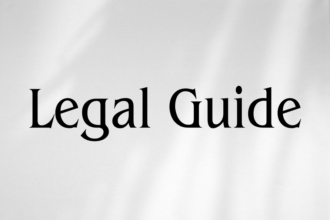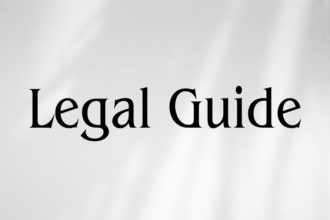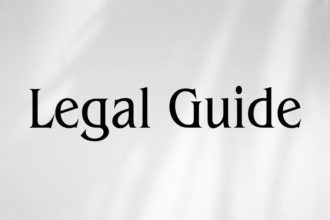Introduction
The robust growth of Islamic banking within the United Arab Emirates (UAE) reflects the country’s commitment to both economic innovation and deep adherence to Sharia principles. As the UAE continues its trajectory as a global Islamic finance hub, the frameworks that govern Sharia compliance have undergone notable refinement. These advancements come amid evolving federal legislation, heightened regulatory oversight, and rising expectations from international investors and local business leaders. In particular, recent updates to UAE law, including new Cabinet Resolutions and guidance from the Central Bank, underscore the country’s heightened focus on not just the operational efficiency, but also the legal transparency of Sharia-compliant financial institutions. Ensuring compliance with Sharia is more than a procedural obligation—it serves as a critical foundation of trust and sustainability within the UAE’s competitive banking environment.
This article offers an authoritative analysis of how Islamic banks in the UAE ensure ongoing Sharia compliance in light of the latest legal updates for 2025. Business leaders, compliance executives, HR managers, and legal practitioners will find actionable insights and practical frameworks that address both risk and opportunity in this dynamic sector.
Table of Contents
- Legal Framework for Islamic Banking in the UAE
- Central Bank Responsibilities and Sharia Compliance Functions
- Key Role of Sharia Supervisory Boards
- UAE Law 2025 Updates: Impacts on Compliance Structures
- Sharia Audit and Governance Mechanisms
- Contemporary Compliance Challenges and Major Risks
- Case Studies and Practical Scenarios
- Developing Robust Sharia Compliance Strategies
- Forward Outlook and Professional Recommendations
Legal Framework for Islamic Banking in the UAE
Foundational Laws and Regulations
Islamic banking operations in the UAE are grounded in a rigorous legal structure that intertwines Federal law with Sharia principles. The foundational statute is Federal Law No. (6) of 1985 concerning Islamic Banks, Financial Institutions, and Investment Companies. In recent years, complementary frameworks such as the Central Bank Law (Federal Law No. 14 of 2018) and its subsequent resolutions have amplified regulatory granularity around Sharia compliance, risk management, and institutional governance.
Critically, the UAE Central Bank is empowered to license, regulate, and supervise Islamic financial institutions, ensuring that all forms of banking, investment, and financing strictly align with Sharia requirements. Supplementary guidelines have been periodically released—most notably, Central Bank Circulars and Cabinet Resolutions—to clarify the creation and oversight of internal Sharia Supervision and Audit Boards.
Recent Legal Developments Impacting Compliance (2023–2025)
In 2023 and 2024, the UAE introduced significant legal updates affecting Islamic banks, including:
- Cabinet Resolution No. 31 of 2023 on the Organization of Islamic Financial Business
- Central Bank Circular 09/2024 regarding Sharia compliance reporting and transparency
- Ministry of Justice Guidelines on the Implementation of Sharia Supervisory Frameworks
These measures reinforce the legal obligation for Islamic banks to maintain comprehensive, independent Sharia compliance controls and reporting mechanisms, as well as to actively monitor evolving international best practices.
Summary Table: Major Legal Instruments Governing Islamic Banking
| Legal Instrument | Core Subject | Key Provisions for Sharia Compliance |
|---|---|---|
| Federal Law No. (6) of 1985 | Islamic Banks & Financial Institutions | Licensing, operational mandates, Sharia basis, board controls |
| Federal Law No. 14 of 2018 | Central Bank & Banking Sector Regulation | Central Bank authority, auditing, governance requirements |
| Cabinet Resolution No. 31 of 2023 | Islamic Financial Business Organization | Updated Sharia board mandates, reporting/disclosure |
| Central Bank Circular 09/2024 | Sharia Compliance Reporting | Unified reporting format, enhanced audit standards |
Central Bank Responsibilities and Sharia Compliance Functions
UAE Central Bank as Principal Regulator
The Central Bank of the UAE operates as the principal regulatory authority overseeing all banking institutions, including Islamic banks. Under Federal Law No. 14 of 2018, the Central Bank wields broad powers to enforce compliance with both conventional banking laws and the additional, specific obligations applicable to Islamic banks.
Key regulatory actions include:
- Review and approval of Islamic financing products
- Supervision of Sharia Supervisory Board appointments and independence
- Mandating strict periodic reporting and compliance documentation
- Conducting surprise audits and thematic reviews
The Central Bank’s heightened focus since 2023, in response to global best practices and advisory input from the Ministry of Justice, includes explicit requirements for banks to demonstrate continuous, not merely annual, Sharia compliance. Failure to do so risks not only administrative penalties but reputational and operational consequences.
Evolution of Regulatory Obligations: 2018–2025
| Area | Pre-2020 Requirements | 2023–2025 Updates |
|---|---|---|
| Sharia Board Independence | Bank-appointed, minimal review | Enhanced Central Bank vetting, independence rules |
| Product Approval | Internal documentation, limited oversight | Mandatory external Sharia certification, ongoing product reviews |
| Disclosure & Reporting | Annual statements | Quarterly, event-driven reporting with public disclosure of findings |
| Audit Mechanisms | Annual audits, internal audit teams | Specialized Sharia audit units, external audits mandated for certain product lines |
Key Role of Sharia Supervisory Boards
Legal Mandates and Practical Application
The establishment and operation of Sharia Supervisory Boards (SSBs) are a compulsory feature under Federal Law No. (6) of 1985 and supported by the 2023 Cabinet Resolutions. Each Islamic bank must appoint a board of qualified Sharia scholars whose primary responsibility is to ensure that all operations, products, and contracts conform to Islamic jurisprudence.
- Board composition standards, as updated in Cabinet Resolution No. 31 of 2023, require a minimum of three independent, certified Sharia scholars with no material conflicts of interest.
- Regular review schedules are to be upheld, with SSBs holding at least quarterly meetings and persistent product monitoring.
SSBs are increasingly recognized as not only religious advisors but also as quasi-regulatory gatekeepers whose audit trails the Central Bank may directly scrutinize.
SSBs and Corporate Governance
Beyond product-level approvals, Sharia Supervisory Boards are now expected to actively shape and monitor the bank’s overall risk management, internal control, and governance strategies. Banks are legally obligated to ensure that SSB recommendations are systematically implemented, reflected in operational policies, and disclosed both internally and externally.
UAE Law 2025 Updates: Impacts on Compliance Structures
Summary of Notable 2025 Legal Updates
In anticipation of growing international investment and to close regulatory gaps exposed during the pandemic, the UAE has recently introduced the following:
- Cabinet Resolution No. 45 of 2024: Mandatory external Sharia audit for Tier 1 products; enhanced disclosures in annual and quarterly financial reports.
- Central Bank Directive 12/2025: Compulsory Whistleblower Protection Charter for Islamic banks, aimed at encouraging disclosure of Sharia breaches without fear of retaliation.
Side-by-Side Comparison: Previous Rules vs. 2025 Updates
| Requirement | Prior to 2025 | 2025 Update |
|---|---|---|
| External Sharia Audit | Optional; internally driven | Mandatory for core banking products; must be certified by approved audit firms |
| Whistleblower Protection | Discretionary; governed by HR policy | Legally required; must provide safe reporting channels, annual compliance reports |
| Disclosure | Annual or ad-hoc | Quarterly and event-driven public disclosure mandated |
Suggestion for Visual: A flow diagram illustrating the process from product conceptualization, SSB vetting, Central Bank approval, external Sharia audit, through to public disclosure.
Sharia Audit and Governance Mechanisms
What Is a Sharia Audit?
A Sharia audit, as defined under Central Bank Circular 09/2024, is an independent review process designed to assess whether a bank’s activities and fiscal reports strictly comply with Islamic law. This procedure is substantially more rigorous than standard compliance visits: it includes document reviews, staff interviews, customer contract checks, and live transaction sampling.
Governance Structures for Sharia Audit
Recent legal updates mandate the following robust governance mechanisms:
- Establishment of independent Sharia audit units reporting directly to the audit committee of the Board of Directors
- Separation of Sharia review from conventional internal audit functions
- Periodic training and certification requirements for internal Sharia auditors
These measures reflect both international best practice and local legislative priorities, and they ensure higher levels of accountability and transparency for all stakeholders.
Compliance Checklist: Governance of Sharia Supervision
| Component | Required by Law | Best Practice |
|---|---|---|
| Sharia Supervisory Board Charter | Mandatory | Public disclosure |
| Audit Unit Independence | Mandatory | External “peer review” every 3 years |
| Reporting Frequency | Quarterly (2025 law) | Monthly internal; ad-hoc external for major findings |
Contemporary Compliance Challenges and Major Risks
Legal and Reputational Risk Analysis
Sharia compliance failures can result in both legal sanctions under the Federal Law and severe reputational fallout. Banks risk:
- Administrative penalties, including substantial fines per Central Bank regulations
- License suspension or revocation in cases of repeated or willful non-compliance
- Loss of customer and investor trust, especially from international partners
- Civil suits and liability for damages from affected customers or partners
The increased frequency and transparency of reporting under 2025 updates demand that banks adopt not only a reactive but a proactive risk management posture, including real-time monitoring and escalation protocols.
Common Compliance Pitfalls (2023–2025)
- Failure to maintain clear SSB independence, resulting in conflicts of interest
- Incomplete or inconsistent documentation of SSB decisions
- Outdated contracts or financial instruments that no longer meet revised Sharia requirements
- Poor whistleblower channel management, discouraging reporting of actual breaches
Suggestion for Visual: Penalty and Risk Matrix Chart summarizing fines, sanctions, and associated reputational impact tiers.
Case Studies and Practical Scenarios
Case Study 1: Product Launch with Latent Non-Compliance
Scenario: An Islamic bank in Abu Dhabi prepares to launch a suite of Murabaha-based financing products. During pre-launch review, the external Sharia audit discovers interest calculation methods hidden within contractual fine print, which if left unchecked, would have violated both Sharia principles and Cabinet Resolution No. 31 of 2023 mandates.
- Intervention: The Central Bank, alerted by the audit findings, issues a directive halting the launch until complete revision and re-certification by the SSB.
- Lesson: Early, independent reviews help avoid costly, reputation-damaging product withdrawals in the public domain.
Case Study 2: Whistleblower Escalation
Scenario: An internal employee identifies repeated irregularities in the application of Zakat within a large Dubai-based Islamic bank’s lending portfolio. Protected by the mandatory Whistleblower Charter per Central Bank Directive 12/2025, the employee reports the breach safely.
- Outcome: The bank initiates a targeted internal and external Sharia audit, resulting in remediation actions and improved controls. The disclosure is publicly reported, bolstering external trust in the bank’s governance mechanisms.
- Lesson: Proactive reporting and transparent remediation are now standard expectations, not exceptions.
Developing Robust Sharia Compliance Strategies
Key Elements of a Sustainable Compliance Program
- Continuous Training: In-house and external certifications for all members of compliance teams, in line with UAE Central Bank and Ministry of Justice requirements.
- Integrated Technology: Adoption of compliance management software with real-time breach alerts, documentation tracking, and seamless audit trails.
- Stakeholder Engagement: Regular engagement with SSB members, regulators, legal advisors, and business units to ensure holistic compliance implementation.
- Transparent Reporting: Open public disclosure of compliance achievements and shortcomings, fostering a culture of accountability.
Professional Consultancy Recommendations
- Establish dual internal and external audit cycles for ongoing assurance.
- Implement an enhanced whistleblower management policy aligned with Central Bank 2025 mandates.
- Designate a Chief Sharia Compliance Officer accountable directly to both the Board and SSB.
- Automate reporting processes to ensure timely, consistent, and legally compliant submissions to regulators.
- Engage third-party advisors, when necessary, to review compliance frameworks and bridge any detected gaps.
Forward Outlook and Professional Recommendations
Legal and Business Perspectives for 2025 and Beyond
The pace of legal change in the UAE’s Islamic banking sector is expected to persist, shaped by a dual imperative: supporting global investment inflows and maintaining uncompromised adherence to Sharia. Adaptive regulatory strategies—including those addressed in Cabinet Resolutions and Central Bank Directives through 2025—will remain the cornerstone of legal risk mitigation and ethical leadership.
Looking forward, businesses, investors, and banks should:
- Monitor ongoing UAE Government and Federal Gazette publications for emerging regulatory clarifications
- Proactively update internal policies to pre-empt regulatory shifts
- Invest in staff development and technology to streamline compliance workflows
- Foster a culture of transparent, accountable governance that aligns with both legal and Sharia expectations
For clients seeking to navigate the complexities of Islamic finance law in the UAE, consulting with experienced legal and compliance professionals is essential. By staying ahead of legislative developments and embracing both local and international best practices, organizations can protect their interests and build enduring stakeholder confidence in a rapidly evolving environment.
Conclusion
The legal landscape for Sharia compliance in Islamic banking within the UAE is both demanding and dynamic. Rigorous new controls introduced by laws and directives up to 2025 heighten the need for continuous compliance vigilance, independent audit, and robust governance. Those institutions able to adapt will not only meet their regulatory requirements but will also position themselves as leaders in a marketplace built on trust, transparency, and ethical stewardship. As the UAE solidifies its reputation as a global Islamic finance center, a forward-thinking, compliant approach offers both protection and opportunity for financial institutions and their clients alike.




